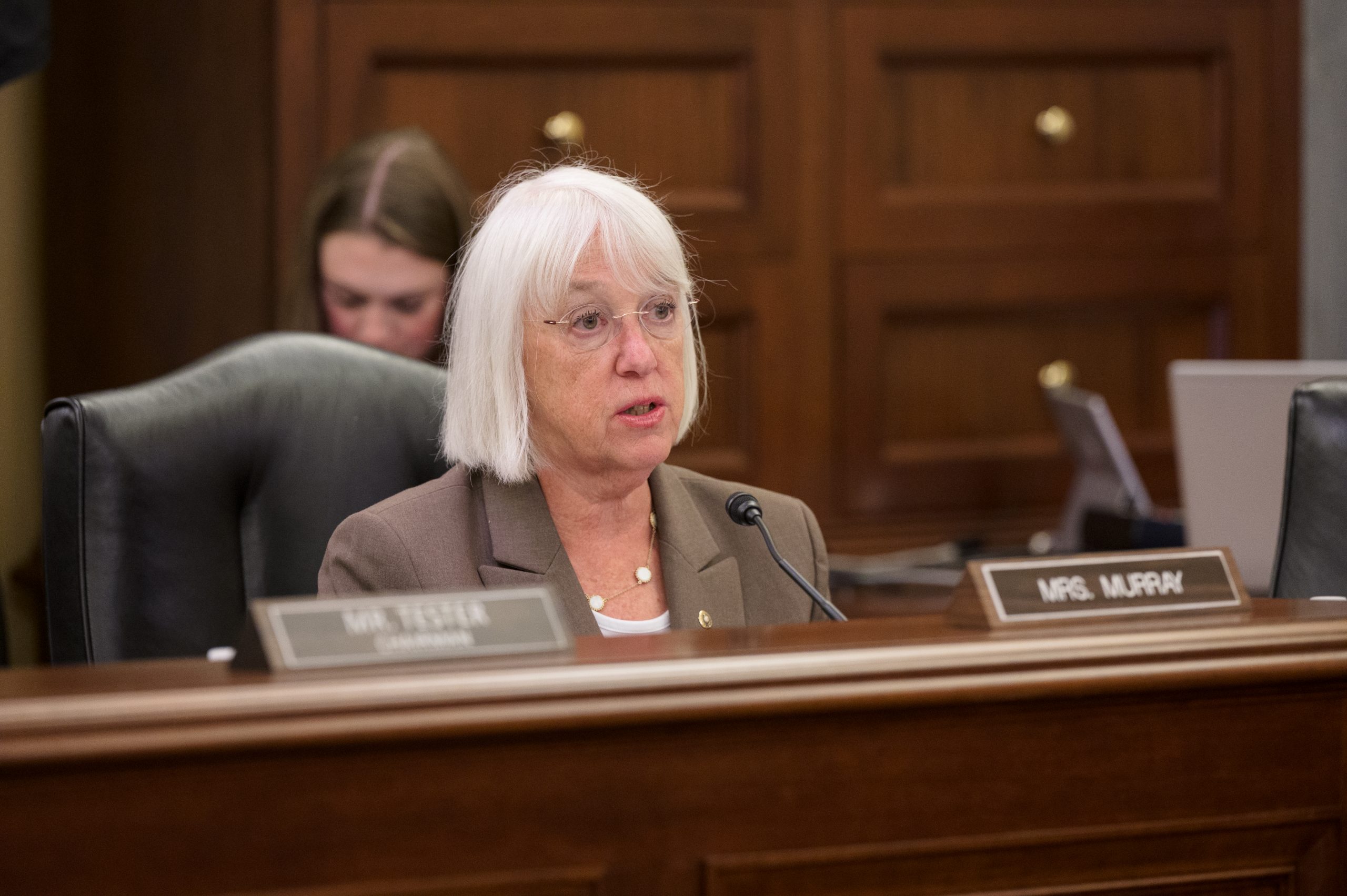***VIDEO AQUÍ***
Washington DC - Today at a Senate Veterans’ Affairs Committee hearing titled, “Military to Civilian Transition: Ensuring Success After Service,” U.S. Senator Patty Murray (D-WA), a senior member and former chair of the Senate Veterans Affairs Committee, questioned witnesses from the Department of Defense (DoD) and Department of Veterans Affairs (VA) about how the federal government can better assist servicemembers with the transition from military service to civilian life.
Murray also asked about lessons learned from the rollout of the Electronic Health Records (EHR) system at the Department of Defense, and how the DoD has earned back trust with providers and servicemembers after significant periods of system downtime, an issue that—among others—has plagued the EHR rollout, including at the two VA Medical Centers where it is currently operational in Washington state.
"There is no question that our servicemembers deserve a seamless transition out of the military to VA services,” Senator Murray said. "In my home state of Washington, DoD went live with its own electronic health records program back in 2017—it has its own challenges, and I’m sure you all know that when the VA rolled out its EHR program, it was not working the way that it should have and patient safety has been a very big concern. So, I want to make sure that DoD is working hand in hand with VA so that we can truly have a seamless electronic health records system that is available across both agencies to serve servicemembers and veterans alike.”
“Can you share some of the lessons DoD has learned while you rolled out your EHR system,” Murray asked Ashish S. Vazirani, Deputy Under Secretary of Defense for Personnel and Readiness. “How did you earn back the trust with providers and servicemembers after you had significant periods of system downtime?”
Mr. Vazirani responded, “As we’ve rolled out our EHR…we’ve learned about what we need to do from a usability standpoint to make the EHR more usable for the health care provider. We’ve learned about the training that we need to conduct to ensure that there’s a quick ramp-up on utilization. And those are some of the things and some of the lessons that we’ve learned that we shared with our VA partners.”
Next, Murray spoke to how the transition out of military service can be particularly hard on women veterans, and asked Mr. Vazirani how DoD specifically supports women servicemembers when they leave service. “Transitioning out of the military is a challenging experience for all servicemembers—but it is particularly difficult for women who face additional barriers in the civilian world, everything from gender pay gaps, to sexual harassment, to lack of access to child care,” Murray said, noting that a study by Syracuse University found that 54 percent of women veterans who recently left the service did not feel prepared to navigate the resources available to them in their local communities—compared to 35 percent of male veterans. “Has DoD tailored the Transition Assistance Program at all for women servicemembers, " Murray asked Mr. Vazirani.
Mr. Vazirani noted that DoD has “tailored, particularly, the education around health benefits and how to access health benefits for women.” Joshua Jacobs, Under Secretary for Benefits at VA, also answered the question, saying “We have what’s called the Women’s Health Transition Training Program, which provides tailored support and information for transitioning servicemembers—[it] includes gender-specific health care information as well as information on how to access benefits in a timely way. What I would say is, it is underutilized. So, we’re working to try to get the word out and promote and encourage more transitioning servicemembers to take it, because we do think it’s a valuable resource.”
Finally, Senator Murray noted that, according tolast year’s Military Family Support Programming Survey, “80 percent of the respondents said their finances were a major source of stress, and more than half of military and veteran families reported experiencing barriers to saving over the previous two years. 22 percent of currently serving military families, 38 percent of veteran families, have less than $500 or no emergency savings at all.” Murray asked Mr. Vazirani, “What is DoD doing right now to promote financial literacy and making sure that that is an integral part of the Transition Assistance Program?”
“One of the things we do is from the very outset, from the time a servicemember starts in boot camp, is making sure they understand what financial readiness resources are available to them. We provide education and training and coaching and access to personal financial counselors throughout their time in service,” saidMr. Vazirani, agreeing to provide additional details in written follow-up.
Video of Senator Murray’s exchange with Mr. Vazirani and Mr. Jacobs is available AQUÍ.
###


